Music Down Memory Lane
The current climate in BC’s public education sector is fraught with emotion, tension, and conflict. As I look around for some words of comfort, here’s what comes to mind:
“Don’t worry about a thing,
‘Cause every little thing gonna be all right.
Singin’: “Don’t worry about a thing,
‘Cause every little thing gonna be all right!”
Bob Marley, Three Little Birds
A song by Bob Marley who, in addition to sharing his music with the world, played an integral role in resolving the crisis in Jamaican politics many years ago. By thinking of song and music, I’m not trivializing the contentious issues we face. I’m recognizing the way in which music helps us.
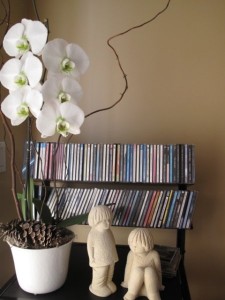
Music is central to our lived experience, individually and collectively. It may have even been a precursor to spoken language. Our cave ancestors likely communicated with rhythm and percussion long before they could yell out, “Run for your lives! Saber-tooth on the loose!”
Like smell or taste, sound can carry us down memory lane. It’s as if we each have a soundtrack to our lives.
As a pre-teen living in Beirut, I idolized Fairuz. There are many songs I associate with her, but one that has lasted with me, even as I’ve lost my fluency in Arabic, is a childhood chant from a decades-old movie which I’ve never seen. Did my grandmother teach me the words to the chorus? I don’t remember, but listening to it now, https://www.youtube.com/watch?v=gLb-n6OUfyk takes me back to a time — which may sound cliché — of innocence. It was before the Lebanese civil war which started in 1974. It was also the year we moved to Vancouver and I had to leave my family, my friends, all I’d known for the past five years, behind.
Thinking back to my high school years in West Vancouver is … well, let’s just say I prefer not to. Although a fluent English speaker and a capable student, I struggled to establish friendships in a new and different cultural environment. While Grade 8 went smoothly enough, Grade 9 was one of social isolation and misery. I think of it as my year of tears. From then through to graduation I continued in my role as a nerdy misfit, but I did find a circle of friends in Grade 10 which helped me tremendously. I recall many songs from this era, but Meatloaf’s album Bat Out of Hell stands out. My friend, my guardian angel at the time and with whom I regret losing touch, had bought the record (yes, it was the days of vinyl!). We’d sit in her room listening to the songs and it likely won’t surprise you that Paradise by the Dashboard Light occasioned much giggling — we were teenage girls! — and was played over and over and over again.
I’ve been thinking about music a lot lately as I watch my son discover the soundtrack to his life. I hadn’t expected his vibe to be so alternative and I believe that may be more a reflection of the paternal influence in his life! I may have introduced him to pop, musical theatre, and classical, but he’s introduced me to the charms of Laurie Anderson (which I have to admit elude me somewhat), Moby, Brian Eno, David Byrne, and Janelle Monaé amongst others. For our visit to Tofino during spring break, he was in charge of the playlists for our drive over and our evenings in.
And because I can’t stay away from education for too long, let me just say I don’t think there’s enough music in our schools although where there is music, fantastic work is being done by educators. I believe this is true of the arts in general: they are in danger of being underrepresented, on a general basis, in our curricula and the practice of day-to-day teaching and learning.
Why do I think this is an issue?
Because the arts, music and others, transport us beyond the limits of our humanity. They are universal, they are boundless, and they are the greatest expression of our potential to be creative, to create.
Music and art help us to defy gravity. https://www.youtube.com/watch?v=3g4ekwTd6Ig
It’s Alive!
“It’s alive: my iPhone has consciousness.”
This assertion cracked up the other participants in my Masters seminar and I’m pretty sure they’re never going to let me forget what I said.
Once you’ve finished laughing, let’s take the time to examine that statement more closely.
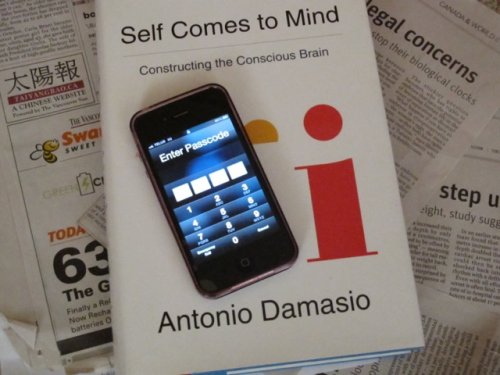
My Graduate Liberal Studies (GLS) course this term was Technologies of the Self with Professor Michael Kenny. The course title comes from Michel Foucault’s work in which he discusses four major technologies, techniques we use to understand ourselves, one of which is technologies of the self. Quoting Foucault, these are the techniques “which permit individuals to effect by their own means or with the help of others a certain number of operations on their own bodies and souls, thoughts, conduct, and way of being, so as to transform themselves in order to attain a certain state of happiness, purity, wisdom, perfection, or immortality.”
This was the guiding theme of the course in which we explored a wide range of ideas such as what does it mean to be human, what dictates human behaviour, is there such a thing as free will, and so on.
We also delved into Antonio Damasio’s book Self Comes to Mind in which the acclaimed neuroscientist and author looks at the question of consciousness. He identifies three criteria for consciousness: wakefulness, mind, and self.
Looking at these, and looking at my iPhone (nicknamed Chummy in our household and whom I often introduce as my son’s younger brother), it seems to me Chummy meets the criteria. He has wakefulness which I can tell because when he’s on, I just have to touch the screen to initiate a series of actions. There’s no question he has mind. I asked him to Google the word “consciousness” and he came back with more reading than I could probably manage in a lifetime. He’s so smart! As to self, well, this gets a bit trickier although I’m pretty sure he would self-identify as an Apple with his snazzy logo wear and engaging social personality.
So why am I considered human and Chummy is not?
That brings me back to wakefulness. Chummy can only come to consciousness if I, or another humanoid, presses a button with sufficient pressure to tell him to wake up. If I’m asleep, my equivalent to “off”, I wake up (barring that last great sleep from which none of us emerges) by some mysterious process that is self-initiated — most likely as a result of a complicated and coordinated process which involves my brain, my vital organs, and my body.
That on/off switch is what I think we’re looking for when we talk about what it means to be human. What is it exactly, who put it there, and how does it work?
And despite the centuries that have been devoted to the topic, despite the advances of science and technology, despite the depths of neuroscience, we still don’t know. And I sometimes wonder whether we should call off the search because history has not been kind to the species when it comes to humans exerting power and control over nature and natural processes.
There’s also my worry that if we do find that on-off switch, will we start treating human beings more like machines since we’re already living in an age where we’re tempted to treat machines more like humans?
Expectations
There are essays to mark yet and a final exam to invigilate, but as of today I’ve wrapped up my second term as a Teaching Assistant (TA) in the Department of Humanities at Simon Fraser University (SFU).
Here are some key insights I’ve gained through this experience:
- I enjoy teaching at the post-secondary undergraduate level.
- I love the Humanities.
- I feel a special affinity to SFU and particularly the Burnaby campus.
My enjoyment has come from the interaction with students in an environment which encourages discussion. And there have been many ideas to discuss! Our texts this term ranged from the Greek tragedy Antigone by Sophocles to Plato’s Apology to the medieval French chanson de geste, The Song of Roland, to The Prince by Machiavelli, to the slave narratives by Frederick Douglass and Harriet Jacobs and the contemporary play Copenhagen by Michael Frayn.
This literary selection speaks to me of the breadth of the human experience, the vast scope of history, and the value of the big picture. It’s also about connection from one era to the next, from the people of yesterday to those we share the world with today. Machiavelli, for example, talks about political power and while our context is radically different from 16th century Italy, when we try to understand recent Canadian political scandals such as the Robocall affair or the F-35 fiasco, are we not considering some of the very same principles he explored in his writing?
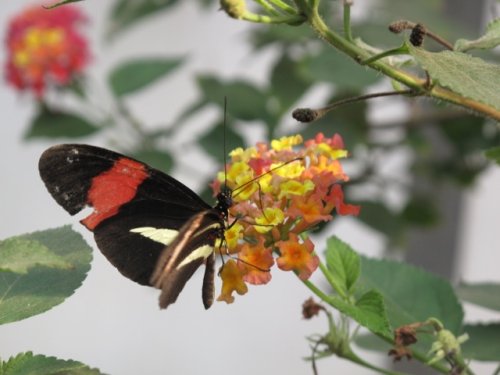
It may be depressing to think that with all of humanity’s progress, human beings and human nature seem to remain stubbornly the same. Perhaps, on the other hand, there is reason to be optimistic since the study of texts such as these validate and reaffirm our human existence. We have a place in this world and we have the ability to expand and enhance our understanding of who we are. Study in this area helps us see the connection to where we’ve come from and perhaps will help us carve out a better path to where we hope to be.
Here’s something else I’ve decided based on my experience at the university. Education in K to 12 is due for an overhaul. We see this “renaissance” starting in the inquiry-based pedagogical approach that is taking hold and in the support initiatives which recognize the needs of the whole child such as self-regulation. But systematic change is needed.
And we need to make sure that students know how to ask questions and establish their own expectations around their learning experiences.
Why?
Each term, I’ve started off my tutorials asking students to identify the expectations and the concerns they have regarding the course. While they seem to have no difficulty in listing their concerns — the amount of reading, the writing load, marks, and so forth — they seem unable to verbalize their expectations.
Is this perhaps because the system has always told them what to expect and what their learning outcomes ought to be? Have we failed to inculcate our students with the ability to independently identify what the purpose of learning is or what their optimal learning experience may look like?
It seems to me that at the very least an undergraduate should be able to say, “I expect to learn.”
And if I can play a part in that learning, then I think, after years of searching, I may just have found my life’s passion.
Is There Another Way ?
I walked around my son’s school yesterday to thank each teacher for their work and to express how sorry I was at the way events are unfolding in public education in British Columbia.
Why?
Because I value teachers and the work they do. Because these teachers, whether early in their careers or with many year’s experience, are caught up, as I am, in forces seemingly beyond our control.
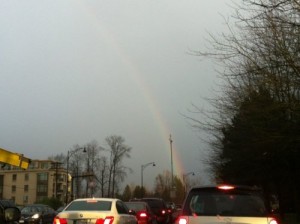 We are spectators to a drama that is playing out on a stage where provincial representatives, whether union or government, cannot find a way to talk to each other. In the absence of dialogue, labeling and name-calling have become the norm. In the absence of a willingness to work towards compromise, brinksmanship has become the norm whether by using the media, social media, or the mechanisms of legislation.
We are spectators to a drama that is playing out on a stage where provincial representatives, whether union or government, cannot find a way to talk to each other. In the absence of dialogue, labeling and name-calling have become the norm. In the absence of a willingness to work towards compromise, brinksmanship has become the norm whether by using the media, social media, or the mechanisms of legislation.
And as much as it is being said that teachers are not shown respect, I feel respect is not being shown towards others in the educational community such as administrators, Trustees, or parents. This disrespect has pervaded the discourse and was on display during George Abbott’s recent Twitter chat. Whatever you may think of the man, his role, and the government he represents, were the derogatory personalized attacks warranted? If you call him a bully or see him as one, is the appropriate response to bully him?
So if our system is dysfunctional, which only serves to harm the interests of those it’s purporting to serve, is there another way forward?
During a recent liaison meeting with administrators, we watched a TEDTalk by Seth Godin in which he talks about starting movements to bring about change.
I’m not sure how and I’m not sure when and I may not be the person to do it, but I would like to start a movement for change in the BC public education system.
To start, I would like to call for a Royal Commission on Education. There hasn’t been one held in BC since 1987, the results of which were captured in a 1988 report entitled A Legacy for Learners.
While expensive and time-consuming, I believe that this high-level, independent, wide-ranging forum is the only way we can capture the big picture of education, its purpose, its link to society, and the way in which its objectives can be fulfilled in the best interest of the students.
I would also suggest, as our understanding has grown over the last 25 years, that a more holistic approach be taken. To truly effect societal change we need to consider education as only one component in a child’s life which links to health and socio-economic well-being among other factors. This would be one way to capture information from other Ministries which may lead to conclusions and recommendations that are transformative in the way we structure programs and services which most affect children and families in this province.
After all, it’s all about the children, isn’t it?
Are Report Cards Irrelevant?
Report card bashing is a popular pastime these days in British Columbia. And the cacophony is bound to get louder when parents discover the report cards they receive bear little resemblance to what they usually get.
Imagine a parent standing there, hand outstretched expectantly for delivery of that all important document. The apprehensive child rummages around his or her backpack for the crumpled up envelope to deliver up the much-loathed, traditional reckoning. Imagine a mother or a father tearing open that envelope, heart-beating, wondering whether this will be an occasion to celebrate with hugs and kisses or glower with frustration or tenderly offer comfort. Slowly, ever so slowly, the white sheet of paper is pulled out from behind it’s protective covering, and the parent looks at the page. Turns it over and looks again. Looks at the child fidgeting, scuffing their shoe against the floor, and gazing in wide-eyed apprehension waiting for their parent to share the news on how he or she has done.
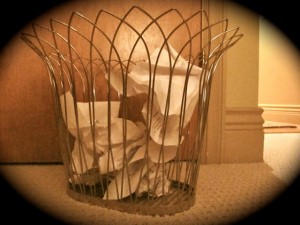 The parent, this term, will see nothing on the page. Aside from attendance and other non-curricular related information, there will be nothing on that piece of paper, except in certain circumstances, because of the job action currently in progress by the province’s teachers.
The parent, this term, will see nothing on the page. Aside from attendance and other non-curricular related information, there will be nothing on that piece of paper, except in certain circumstances, because of the job action currently in progress by the province’s teachers.
The delivery of blank report cards is being sloughed off as a way to minimize the possibility of an outcry from parents — they’re not essential we’re being told, report cards are irrelevant anyways, so don’t worry. But before we consign all those woefully blank sheets of paper to the recycling bin, let’s look at this issue a bit further.
It seems to me that report cards are part of a larger discussion around the issue of assessment which is currently taking place in education. As a parent and active volunteer, I am not very familiar with current practices and research — I can only speak to the information I’ve gleaned through reading, asking questions, and the social media information exchanges I’ve had on-line.
Assessment FOR Learning (AFL) seems to be the approach now being embraced in education circles. This is a process for providing feedback to students — not graded and not numerical — to help them understand where they stand with their learning and the steps they need to take to progress. I think this sounds like a wonderful new approach with lots of potential to create a safer environment for students in which to risk and to strive and to achieve. It also seems designed to help them develop a sense of ownership for their own learning, a critical skill.
However, given the way our society is currently structured, I don’t see how we can escape completely from coming back, at some point, to marking, to a grade, to a numerical value which is presented as a summary of student achievement.
The form and content of a report card still serves a useful function. It provides a snapshot, a quick look at where a student stands at a certain point in time. There may be weaknesses with this approach, but it does actually cover a lot of territory in a relatively quick and efficient way.
To prepare parents for the seemingly absurd — actually, surreal — experience of receiving blank report cards the push has been to assert that teachers will provide information on how students are doing, and so forth. I have no doubt they are endeavouring to do so.
But let’s consider: when report cards are sent home, there will be a certain percentage of parents who request a follow-up with the teacher because of concerns they have regarding their child’s assessment. However, it seems to me that the larger proportion of parents accept the report card without question. Are we cognizant of the additional time commitment on teachers if report cards are eliminated and instead of speaking with only those parents who do follow up, being required to provide assessments by speaking to ALL parents? In speaking today to a Trustee from another provincial jurisdiction there are also those parents who may be hesitant to approach teachers and schools. To them, the report card is the primary means of communication they rely on. While we may want to focus on community outreach to allay such reluctance, maybe we need to be aware that report cards do represent a valid mode of communication for a subset of parents.
I think the focus on assessment is crucial: both the assessment for students in school for their learning and as a means of sharing information with those outside the confines of the classroom and the school. And perhaps there will be better models — maybe there already are — for reporting out and maybe we do have to consider at what age and for which students numerical values or letter grades for performance are appropriate.
Until we get there, let’s not label report cards irrelevant: they aren’t. Let’s focus instead on finding the combination of form and content which will make assessment and reporting meaningful, productive, supportive, and transformative for all students.